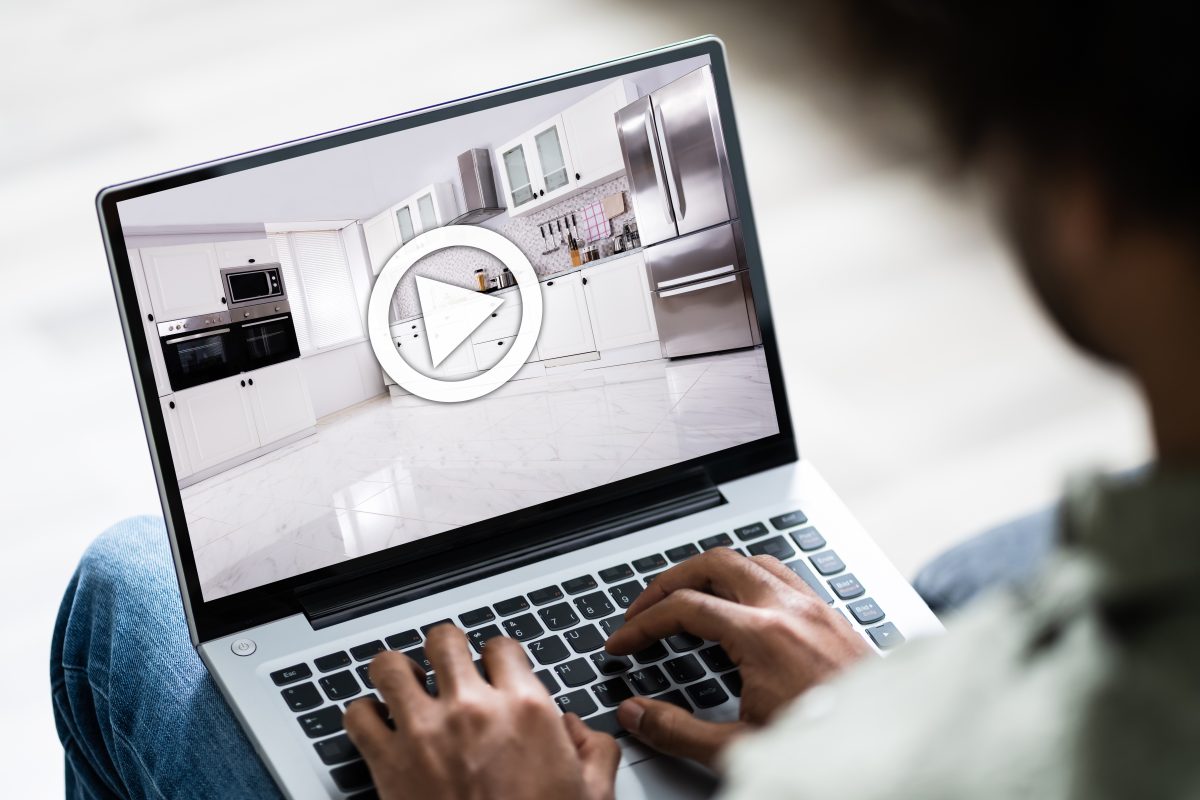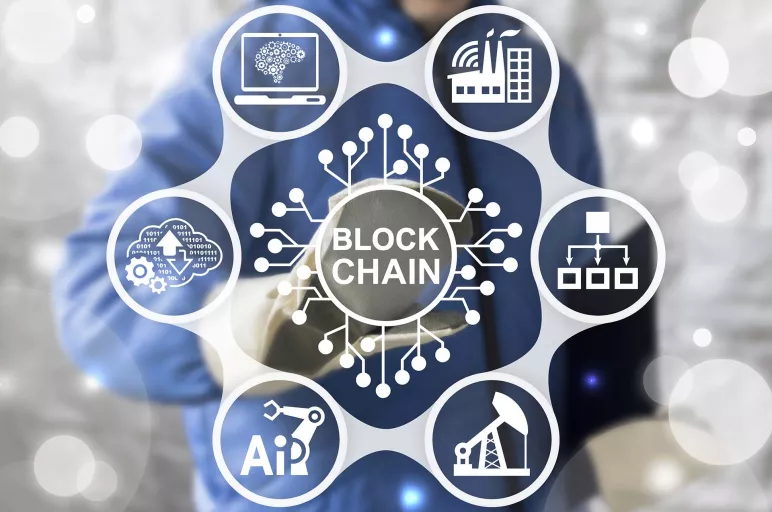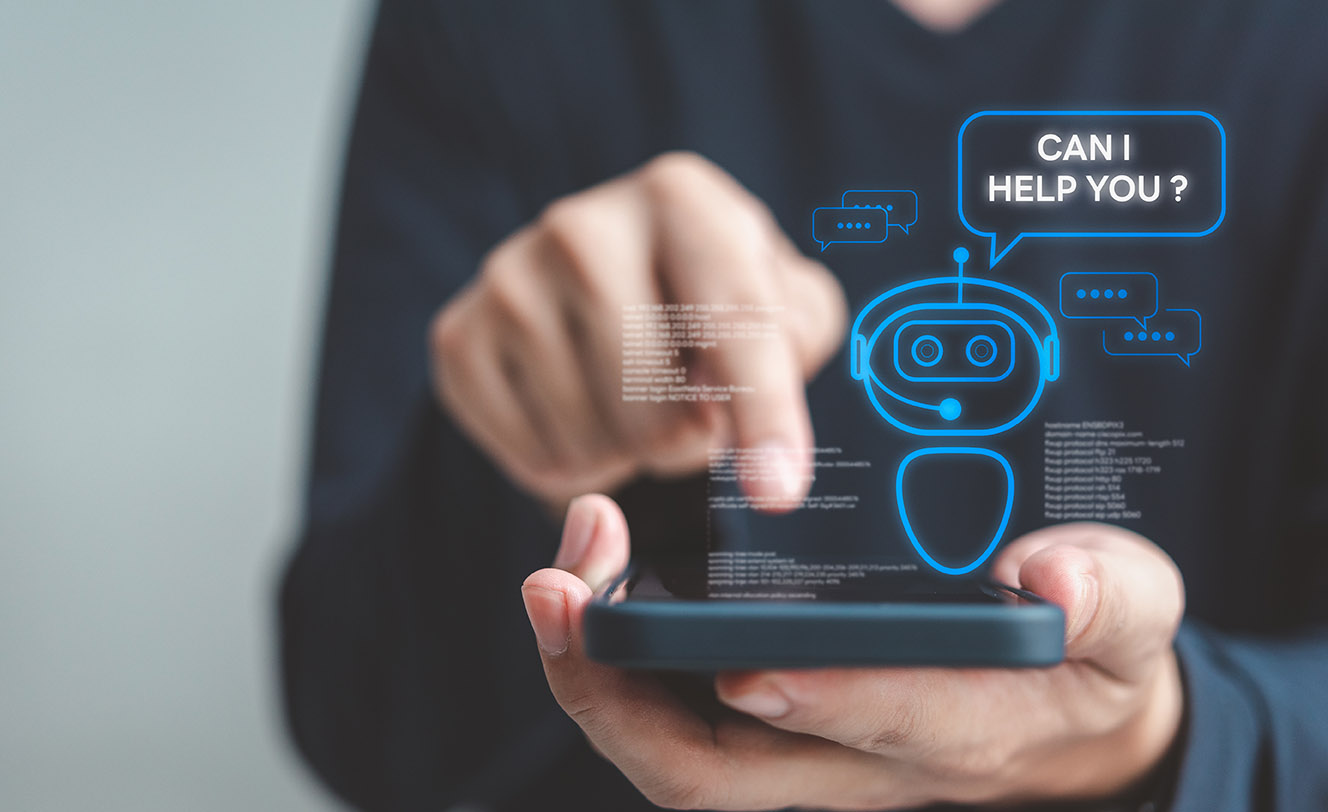As a leading property management software provider, we know the ins and outs of the industry, including the technologies emerging in 2024.
In this guide, I have shared key property management trends in the US market, which include smart home technology, AI-powered analytics, and more.
Most importantly, you will learn how each of these technological trends is transforming daily operations, decision-making, and tenant interactions.
👉 Manage your properties smoothly from lease application to move-out. Our tools handle every step, saving you time and hassle. Try RentPost free for 30 days.
What is property management technology?
Property management technology refers to the various software solutions and tools used by property managers and owners to help operate residential and commercial real estate more efficiently. These technologies streamline essential property management tasks like tenant/lease tracking, maintenance requests, accounting, reporting, online payments, communications and more.
Popular features include integrated property accounting, tenant portals for payments and requests, mobile apps, automated reporting and analytics using AI and machine learning, smart home integrations, virtual tours/showings and electronic document management.
Overall, property management technology aims to save managers time, reduce costs and enhance communication and oversight across their property portfolio. By leveraging these cloud-based systems, property teams can work collaboratively in real-time to deliver better service to owners and tenants.
If you’re a property manager, learn how much you can charge in the rental property management business.
12 Technology Trends Reshaping the Property Management Process
The property management industry is undergoing significant transformation due to advancements in technology. These changes are revolutionizing the way properties are managed, enhancing efficiency, improving tenant experiences, and enabling better decision-making for property owners. Here’s a glimpse into how property management technology is changing the game.
Technology trends for rental property management at a glance:
| Technology Trend | Description | Impact |
|---|---|---|
| Smart Home Technology | Convenience, efficiency, and connectivity. | – Remote control, energy optimization, proactive maintenance. |
| Property Management Software | Automates and optimizes tasks. | – Centralized lease management, data analytics, and transparent communication. |
| Predictive Maintenance | Anticipates maintenance needs. | – Proactive interventions, optimized schedules, enhanced efficiency. |
| Virtual Tours and 3D Visualization | Immersive experiences for remote exploration. | – Accelerated decision-making, improved showcasing, enhanced satisfaction. |
| Online Rental Marketplaces | Digital hubs for property transactions. | – Streamlined marketing, simplified rental processes, and data insights. |
| Data Analytics and Insights | Shapes management through data-driven decisions. | – Predictive insights, tailored services, informed decisions. |
| Blockchain for Property Transactions | Transparency, efficiency, and reliability. | – Secure records, automated agreements, and enhances trust. |
| Tenant Portals and Communication | Centralized platforms for tenant interaction. | – Digitized transactions, transparent communication, improved efficiency. |
| Energy Efficiency and Sustainability | Drives change in management practices. | – Adoption of energy-efficient technologies, and integration of renewables. |
| Remote Monitoring and Security | Real-time insights and enhanced safety. | – Proactive maintenance, remote monitoring, establishing a sense of safety, etc. |
| Chatbots and AI Assistants | Automates tenant interactions and boosts efficiency. | – Instant responses, 24/7 communication, streamlines tasks. |
| Enhanced Resident Experience | Utilizes innovative strategies for superior service. | – Mobile apps, and online portals, focuses on satisfaction and efficiency. |
1. Smart Home Technology
Smart home technology is revolutionizing property management by introducing a new era of convenience, efficiency, and connectivity. Through interconnected devices and systems, property managers can remotely monitor and control various aspects of properties, enhancing both tenant experiences and operational effectiveness.
Smart thermostats, lighting, and security cameras enable property managers to optimize energy usage, enhance security, and respond swiftly to maintenance needs. Remote access to these systems allows for real-time adjustments and issue resolution, reducing costs and improving tenant satisfaction.
Moreover, smart technology offers predictive insights. Sensors can detect anomalies like leaks or temperature fluctuations, enabling proactive maintenance before problems escalate. This predictive capability minimizes downtime and extends the lifespan of property assets.
Tenant interactions are also transformed as smart technology enables seamless communication and streamlined processes. Digital platforms facilitate rent payments, maintenance requests, and lease renewals, simplifying administrative tasks for both property managers and tenants.
2. Property Management Software
Software is spearheading a revolution in the future of property management by automating and optimizing various operational aspects. Property management software centralizes and digitizes tasks such as lease management, rent collection, maintenance requests, and communication. This streamlines processes, minimizes errors, and allows property managers to allocate their time strategically.
The integration of data analytics and artificial intelligence within property management software enables predictive insights, empowering managers to anticipate maintenance needs, optimize rent pricing, and make informed decisions. Additionally, software platforms facilitate collaboration among property managers, tenants, and owners by offering transparent communication channels and document sharing.
Tenant experiences are elevated as well, as modern software enables online rent payments, digital lease agreements, and easy communication through web portals or mobile apps. This simplifies tenant interactions and boosts satisfaction.
Furthermore, the software’s ability to generate real-time reports and analytics empowers property managers with a deeper understanding of property performance and financial trends. This data-driven approach informs proactive strategies, reducing operational costs and enhancing property value.
3. Predictive Maintenance
Predictive maintenance is an advanced approach that leverages data analysis and technology to anticipate when equipment or systems will require maintenance, allowing property managers to address issues before they lead to costly breakdowns or disruptions.
By monitoring the performance of assets through sensors, historical data, and machine learning algorithms, predictive maintenance anticipates when components might fail, enabling proactive interventions and optimizing maintenance schedules.
This concept is reshaping the future of property management by revolutionizing asset management strategies. Traditional reactive maintenance methods often result in unexpected downtime, elevated repair costs, and tenant dissatisfaction.
Predictive maintenance, on the other hand, reduces unplanned downtime by identifying underlying issues early, preventing major breakdowns, and extending the lifespan of property assets. Additionally, predictive maintenance contributes to cost savings by eliminating unnecessary maintenance and optimizing resource allocation.
In a nutshell, predictive maintenance is property management technology that shifts from reactive practices to proactive strategies. This transition enhances property performance, tenant satisfaction, and operational efficiency, ultimately driving a more sustainable and successful management experience.
4. Virtual Tours and 3D Visualization
Virtual reality (VR) and augmented reality (AR) are two transformative technologies reshaping the property management process by offering immersive and dynamic experiences of real estate properties. Virtual tours provide a digital simulation that allows users to navigate through a property using a computer or mobile device, offering a lifelike sense of space and layout. On the other hand, 3D visualizations involve creating realistic three-dimensional models of properties, showcasing their architecture, design, and features in a detailed and interactive manner.
These types of property management technology are revolutionizing the industry by enabling potential renters to explore properties remotely, gaining a comprehensive understanding of the layout and design without physically being present. This convenience accelerates decision-making and reduces the need for multiple in-person visits.

Virtual tours and 3D visualizations also enable a property management company to present its properties with higher accuracy and realism. These tools showcase a property’s potential, emphasizing its unique features and layout, which can help attract and retain tenants or buyers.
Moreover, these technologies enhance transparency and trust in the property management process. Potential tenants or buyers can view properties from various angles and perspectives, reducing the likelihood of misunderstandings or misinterpretations. They also expedite decision-making, enhance property showcasing, and improve overall tenant and buyer satisfaction.
5. Online Rental Marketplaces
Online rental marketplaces are revolutionizing property management by providing a digital hub for property listings, communication, and transactions. These digital platforms provide a user-friendly interface for landlords to advertise their properties and for prospective tenants to browse, inquire about, and often even apply for rentals. They may include features such as property photos, descriptions, virtual tours, and reviews, offering a comprehensive view of available rental options.
Landlords and property managers can reach a wider audience, streamlining the marketing process and potentially filling vacancies more quickly. Tenants benefit from a simplified and digital rental search process, enabling them to explore properties, communicate with property managers, and even submit applications remotely.
The integration of online payment systems and digital lease agreements further modernizes property management. Rent payments, security deposits, and lease signing can all be conducted online, reducing paperwork and enhancing convenience for both parties.
Additionally, the data generated by these platforms offers insights into market trends, rental pricing, and tenant preferences, empowering property managers to make informed decisions and optimize their strategies.
6. Data Analytics and Insights
Data analytics and insights are fundamentally altering the trajectory of property management, ushering in a future marked by data-driven decision-making, efficiency, and improved tenant experiences. Through the collection, analysis, and interpretation of vast amounts of property-related data, property managers gain valuable insights that shape their strategies and operations.
By harnessing data analytics, property managers can predict maintenance needs, optimize resource allocation, and enhance energy efficiency. Predictive maintenance detects patterns in equipment performance, enabling proactive repairs that reduce downtime and operational costs. Moreover, data-driven insights inform decisions on rent pricing, lease terms, and property improvements, maximizing revenue and attracting tenants.
Tenant experiences are also elevated through data analytics. Feedback and engagement data can be used to tailor services, improve amenities, and respond to tenant preferences promptly. This enhances tenant satisfaction and loyalty.
Property managers can also employ data analytics to assess market trends, allowing them to make competitive pricing decisions and understand changing demand dynamics. Furthermore, data-driven insights support risk assessment, helping property managers identify potential issues and mitigate them before they escalate.

7. Blockchain for Property Transactions
Blockchain technology is a decentralized and tamper-proof digital ledger that records transactions across multiple computers. Each transaction, or “block,” is linked to the previous one, creating a secure and transparent chain of information. This technology ensures data integrity, enhances security, and reduces the need for intermediaries in various industries.
In property management, blockchain is revolutionizing the future by introducing transparency, efficiency, and reliability to various processes. It enhances property transactions by providing a secure and tamper-proof record of ownership and title history. This reduces the need for intermediaries and minimizes the risk of fraudulent activities.
Smart contracts, which are self-executing agreements with terms encoded in code, are a key application of blockchain in property management. They automate processes like lease agreements, rent payments, and maintenance schedules, ensuring accuracy and reducing human error.
Furthermore, blockchain’s ability to facilitate secure and transparent data sharing among stakeholders—such as property managers, tenants, and owners—improves communication and simplifies administrative tasks. As a result, it reduces inefficiencies, enhances trust, and paves the way for a more streamlined and secure property management process.
8. Tenant Portals and Communication
Tenant portals are digital platforms that provide a centralized online space for tenants to interact with property managers, access information, and perform various tasks related to their rental property. These portals offer a range of features such as online rent payments, maintenance requests, document sharing, communication tools, and access to important property-related information.
Tenant portals are enhancing the future of property management by promoting convenience, efficiency, and tenant satisfaction. They enable tenants to pay rent online, eliminating the need for manual checks and providing a secure and streamlined payment process. Maintenance requests can be submitted through the portal, ensuring prompt responses and efficient issue resolution.
Moreover, tenant portals facilitate transparent communication between property managers and tenants. Important documents such as lease agreements, move-in/move-out checklists, and property rules can be easily accessed and shared. This reduces misunderstandings and promotes a more harmonious tenant-manager relationship.
Tenant portals also empower tenants to take greater control over their living experience. They can update personal information, track maintenance requests, and access historical payment records at their convenience.
In essence, tenant portals are shaping the future of property management by digitizing and simplifying tenant interactions, leading to improved operational efficiency, enhanced tenant engagement, and overall higher levels of tenant satisfaction.

9. Energy Efficiency and Sustainability
Energy efficiency and sustainability are driving significant changes in the landscape of property management. As awareness of environmental concerns and energy consumption grows, property managers are increasingly adopting practices that prioritize efficiency and sustainability to meet regulatory requirements, reduce operational costs, and attract environmentally-conscious tenants.
Property managers are implementing energy-efficient technologies such as smart thermostats, LED lighting, and efficient HVAC systems to reduce energy consumption and operational expenses. Renewable energy sources like solar panels are also being integrated to power common areas and reduce reliance on conventional energy grids.
Sustainable building materials and practices are becoming integral in property development and management. Green certifications like LEED and ENERGY STAR are being sought to showcase a commitment to sustainability, leading to increased property value and marketability.
Water conservation is another aspect of reshaping property management. Low-flow fixtures, rainwater harvesting, and efficient irrigation systems are being adopted to minimize water waste and contribute to overall sustainability efforts.
These changes are driven not only by environmental considerations but also by financial benefits. Energy-efficient properties have lower operating costs, attract quality tenants, and experience higher tenant retention rates due to improved comfort and reduced utility expenses.
10. Remote Monitoring and Security
Remote monitoring and security provide real-time insights, enhanced safety, and streamlined operations. Through advanced technology such as IoT devices and security cameras, property managers can remotely monitor properties, track occupancy patterns, and detect potential issues like leaks or security breaches.
This capability allows property managers to proactively address maintenance needs, ensuring the optimal functioning of systems and minimizing downtime. It also contributes to improved tenant experiences, as quick responses to concerns lead to higher satisfaction.
Furthermore, remote security systems offer heightened protection for both physical assets and occupants. Property managers can monitor access points, receive alerts for unauthorized activities, and even remotely grant access to authorized personnel or tenants.
Incorporating remote monitoring and security not only reduces the need for on-site presence but also increases operational efficiency, lowers the risk of property damage or theft, and establishes a sense of safety that attracts and retains tenants. Overall, these advancements are reshaping property management by providing data-driven insights and safeguarding properties in a more convenient and effective manner.

11. Chatbots and AI Assistants
Chatbots and AI assistants are among the leading property management tools revolutionizing tenant interactions, boosting efficiency, and enhancing tenant experiences. These technologies provide instant and automated responses to inquiries, maintenance requests, and other tenant concerns, reducing the need for manual intervention and improving response times.
Chatbots facilitate 24/7 tenant communication, allowing them to receive assistance at their convenience, which increases satisfaction and tenant retention. AI-powered analytics process vast amounts of data, helping property managers make informed decisions on rent pricing, maintenance scheduling, and resource allocation.
Moreover, AI-driven predictive maintenance forecasts potential issues by analyzing historical data, enabling proactive maintenance and minimizing disruptions. Chatbots also streamline administrative tasks such as rent collection and lease renewals, freeing up property managers to focus on strategic planning.
12. Enhanced Resident Experience
Property managers will continue to employ innovative strategies and technologies that deliver superior service and convenience to tenants. The goal is to improve resident satisfaction, boost retention rates, and support higher rental incomes through premium tenant experiences.
Specific examples include resident mobile apps and online portals, digital and contactless processes, omnichannel communication, and premium or upgraded amenities and services.
By optimizing operations through technology and focusing more strategically on the tenant lifecycle – property management organizations aim to stand out through superior products, services and support.
This resident-centric model ultimately boosts reputation, occupancy and profitability in today’s market where renters have ample housing options and luxury expectations around experience.

How RentPost™ Simplifies the Property Management Process
The RentPost™ platform make the entire property management process easier for tenants, landlords and property owners in several key ways:
1. Automates admin tasks
Rental software centralizes and automates time-consuming tasks like collecting rent, creating reports, screening tenants, sending maintenance alerts and tracking leases.

2. Enables remote management
Cloud-based platforms allow property managers to oversee their portfolio from anywhere via mobile apps, providing more flexibility.
3. Streamlines communication
Built-in communication tools allow seamless messaging with tenants, owners and staff all in one system for faster resolution.
4. Provides insights with analytics
Robust reporting and data analytics help managers identify issues, trends and opportunities to improve performance and income.

5. Allows online payments
Digital rent collection via credit cards, bank transfers or e-checks eliminates payment delays. Online portals give tenants transparent tracking.
6. Boosts organization
Integrated accounting, document storage, unit/lease details and tenant data ultimately improves organization across the business.
7. Improves tenant satisfaction
Tenant apps and self-service portals enable 24/7 management of work orders, payments or queries, improving responsiveness.
8. Facilitates maintenance
Maintenance teams can be automatically notified of unit issues, accept jobs, upload progress photos and report completion in one go.
By leveraging these Rentpost™ software features, landlords reduce manual work, minimize errors, keep better records, and deliver a smoother more efficient service to owners and tenants alike. This allows them to manage more properties with less effort and stay ahead of the curve while deliver superior services to tenants and property owners alike.


 Log in
Log in Free Trial
Free Trial









